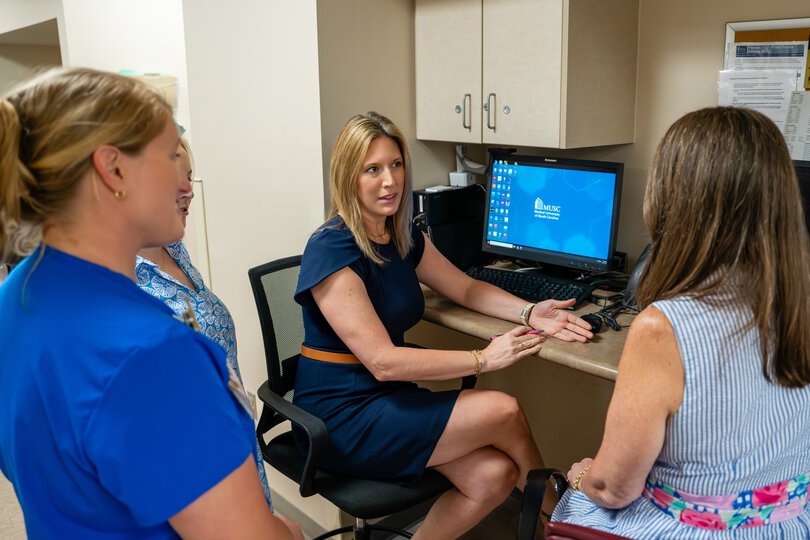MUSC Hollings Cancer Center received one of the first three Elekta Esprit stereotactic radiosurgery (SRS) systems in the country. The Elekta Esprit system means better precision, less toxicity and a more comfortable experience for patients.
SRS uses gamma radiation to perform noninvasive “surgery” in the brain without the need for cutting instruments. It can be used for any type of cancer that has metastasized to the brain; most often this is lung, breast, melanoma, or kidney cancer. It is also used for non-cancerous tumors (for example, meningiomas) and neurological conditions, such as trigeminal neuralgia, a chronic pain condition.
The Elekta Esprit uses 192 beams of radiation, each as small as 4 millimeters, to target precise locations in the brain within 0.3 millimeters, sparing healthy brain tissue nearby.
The system can be used with a frame or mask, depending on the individual treatment plan. The mask system means that some patients will be eligible for fractionated treatment, or a treatment plan that is broken up into three or five sessions rather than one. This means shorter, more comfortable sessions and less toxicity, as well as improved treatment of larger tumors. The increased flexibility of the Esprit system means that more patients will find they are eligible for this treatment option.
Our team of radiation oncology physicians and physicists helped bring radiosurgery to South Carolina more than 20 years ago. As a joint partnership between the departments of Radiation Medicine and Neurosurgery, our Gamma Knife Center performs approximately 300 radiosurgeries per year and is one of the largest Gamma Knife facilities in the country.
Our extensive experience results in better outcomes for our patients and our team approach streamlines the process of evaluating each patient’s options, so that the most appropriate course of treatment can be developed and initiated without unnecessary delay, confusion or anxiety. This system represents our continuing commitment to offer patients the latest options in radiosurgery.


